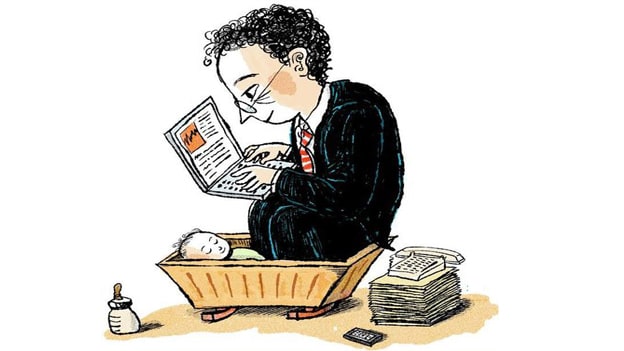Embracing & Celebrating Fatherhood: Rise of Paternity leaves in India

A few months back, India garnered worldwide attention by increasing the duration of paid maternity leave to 26 weeks. However, alongside this much appreciable change, a lesser-talked-about trend has also been slowly, but surely, manifesting itself firmly in the Indian corporate setting. Fathers are being acknowledged for their role as a new parent too, and are being offered liberal leaves as well.
While the central government has provided a paid leave of 15 days (before or within 6 months from date of delivery) to its male employees for over a decade now, there is no law that dictates the paternity leave policy in the private sector. Traditionally, and even now, several companies believe it is enough to offer a few token days (five or 10) of leaves to new fathers; others are designing progressive policies which are either equivalent or comparable to those granted to new mothers.
A recent report shows that the percentage of organisations providing paternity leaves rose from 60% in 2014 to 75% in 2016. It also adds that “India is among the top 10 countries with the highest percentage of companies providing paternity and adoption leaves above the statutory requirement in the world.”
While Indian arms of companies like Deutsche, Ikea , Microsoft and more recently Johnson & Johnson have updated their paternity leave policies in the recent past, some like IBM India (five days) and Mondelez India (10 days) still have catching up to do.
Globally, the trend has been in the making for some time. Giants like Amazon, Virgin, Google, Facebook and Microsoft have in the past few years significantly included fathers in their parental leave policies, and some have effectively removed the gender bias. While there might be some truth to the beliefs of India’s Women and Children Welfare Minister Maneka Gandhi, that paternity leaves might just be extended holidays for men, especially in the Indian context, it might do us all some good if we also consider the alternate viewpoint as well. Among the many readily available statistics, probably the ones that stand out are:
- Fewer countries have mandatory paternity leaves (79 countries in the world as compared to 183 countries that ensure mandatory maternity leaves).
- The scale of duration of the paternity leaves is more extreme than those of maternity leaves (1 full paid day in Tunisia and 90 days with 80% pay in Iceland).
- A father, on an average, takes one day off every month to bond with his new baby for every month the mother does.
Furthermore, we really need to ask the question as to why new fathers are sceptical of taking paternity leaves and what can be done through legislation and corporate policy-making to help them in this new chapter of their lives. While it is heartening to see companies finally waking up to realise the importance of giving new fathers some time off, creative policies like that of Ikea (that ensures extended leave to the father if the mother goes back to work) can allay the fears of misuse of the liberal policies.
For those who are still working to update their paternal leave policies, a good starting point could be their global peers who have excelled in offering enviable leave policies for new fathers. In times when companies are focussing on employee well-being more than ever before, supporting them during such life-altering events will obviously go a long way to evoke trust, loyalty and commitment. Globally, as well as nationally, it is a wonderful time for new parents to have a thriving career with a balanced personal life. While it might be premature to say that one doesn’t come at the cost of the other, there is a definite and sustained effort from different stakeholders to ensure that it becomes a reality.
















